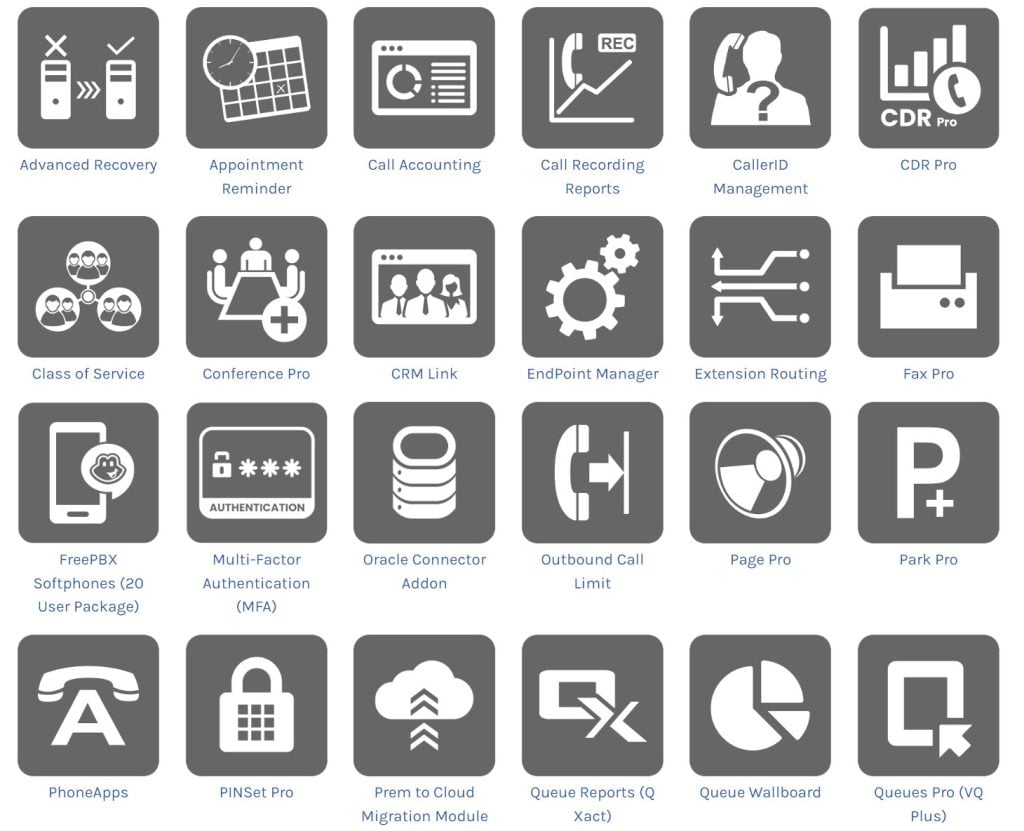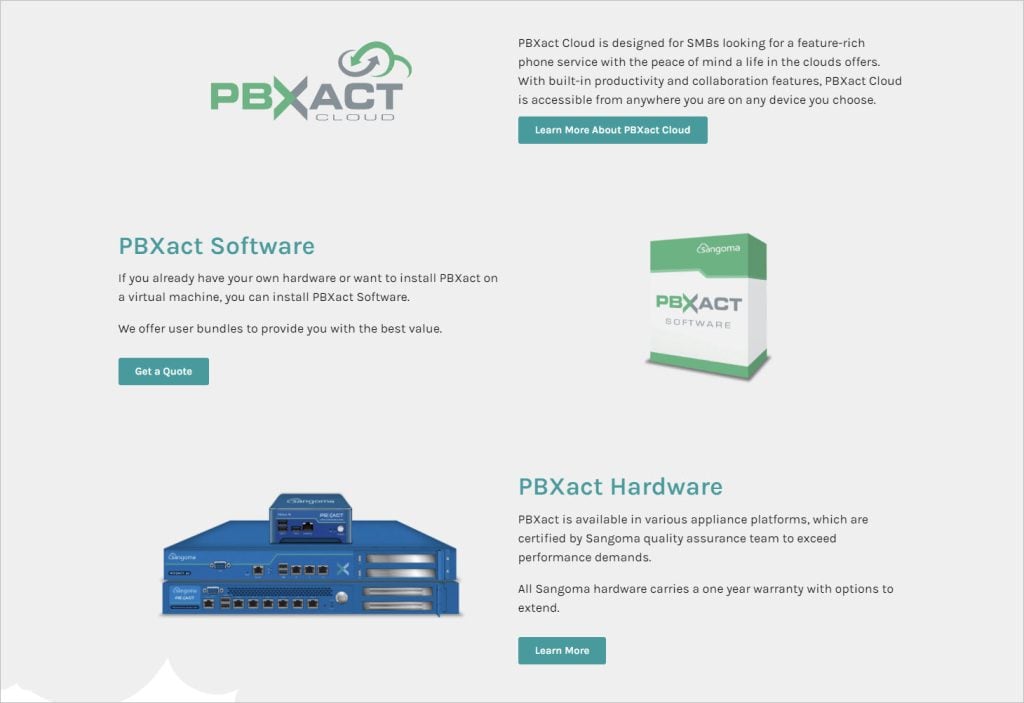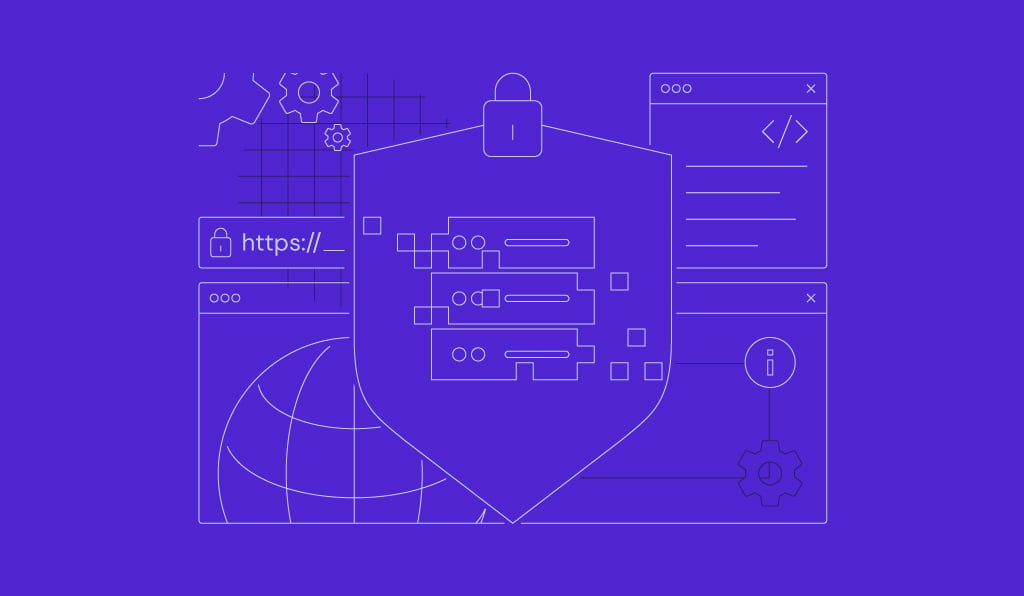What is FreePBX and why use it for your phone service
No matter if you’re a small startup or a large enterprise, the phone system you choose can significantly impact your operational efficiency and customer satisfaction. With FreePBX, you get a versatile and user-friendly platform that integrates well with other services.
FreePBX is an open-source solution that offers a robust alternative to traditional phone systems and provides a range of advanced features designed to enhance communication.
In this tutorial, we’ll explore what FreePBX is, how it works, and why it might be a great fit for your organization’s phone service.
We’ll also discuss more of FreePBX’s built-in features, what its key advantages over the competition are, and how to extend its capability.
How FreePBX works
FreePBX is a graphical user interface that manages Asterisk, a free and open-source Private Branch Exchange (PBX) framework. This framework is used to connect extension phones across different networks and build communication applications, including telephony, email, web apps, video chat, and instant messaging.
You can install FreePBX as standalone software or as a pre-configured component of the FreePBX Distro, a Linux distribution based on CentOS. The FreePBX Distro contains everything you need to make a FreePBX system, including the operating system and the Asterisk platform.
FreePBX separates extensions into users and devices, allowing for multiple devices to be associated with the same phone number. The structure can be broken down into the following categories:
- FreePBX user: represents the user, identified by their internal extension number. That number is the user’s identity in the system.
- FreePBX device: a single device can have many users assigned. The device number uniquely corresponds to a physical endpoint.
- Endpoint configuration: the actual configuration for the specific device. For Session Initiation Protocol (SIP) endpoints, this configuration is written into config files and provisioning settings.
Key features of FreePBX
Apart from common features like managing incoming and outgoing calls, queues, or ring groups, FreePBX lets you extend your service to cover more advanced call management options.
Features like call recording, tracking caller IDs, or viewing call logs and other call detail records help you keep your network safe. You can also screen callers, blacklist, and access call event logging to ensure a secure environment.
There are more features that make FreePBX a versatile system. For example, by enabling softphone support, users can make and receive calls using software-based phones on their computers or mobile devices. Users can also integrate CRM and third-party applications through dedicated modules.
FreePBX achieves this versatility mainly because of its three key components:
- Asterisk server
- Web interface
- Modules
Asterisk server. This server is a telephony engine that handles call routing, voicemail, conferencing, and other essential PBX functions.
FreePBX with Asterisk is compatible with the majority of commercially available virtual machines and hardware. You can deploy an Asterisk VoIP server on a physical machine or in a virtual environment, like a Virtual Private Server on which you can build your VoIP telephony infrastructure.
VPS hosting allows you to upgrade your server resources like RAM, CPU, disk space, and bandwidth to ensure the stability and performance of your phone service as your infrastructure grows.
Hostinger offers FreePBX VPS hosting plans that come with a FreePBX template for an easier setup.
Web interface. The FreePBX web interface allows users to configure and manage Asterisk through menus, forms, and options without any technical skills required, all done through a browser.
Users can also set up extensions, trunks, dial plans, and other PBX features and modules that build up a VoIP system.
Modules. Beyond the built-in features, FreePBX enables users to add specific capabilities through modules:
- FreePBX Softphones. Allows users to call and chat from any device or location, available for both desktop and mobile devices.
- Page Pro. Enables paging so that you can make announcements across multiple phones or devices.
- Extension Routing. Provides control over outgoing routes, like allowing local numbers to be dialed but blocking costly long-distance calls.
- Voicemail Reports. Lets admins review all users’ voicemail settings.
- Conference Pro. Manages conference room settings.
- CallerID Management. Allows users to easily modify the outbound caller ID from their endpoint.
As your business grows, the modularity of the system makes it conveniently scalable while remaining secure.

The open-source nature of FreePBX doesn’t make it difficult to maintain it as a secure phone system. FreePBX offers a reliable environment on which you can base your communication infrastructure thanks to the following security measures:
- Firewall Module. Controls access to various services on your system, ensuring security. FreePBX’s firewall operates under a default deny policy.
- Session Border Controllers. Enhances VoIP network security by enabling advanced SIP compatibility and secure IP connections for remote workers.
- SSL Protocol Configuration: administrators can configure individual SSL protocols for HTTPS.
- Intrusion Detection Features: FreePBX 16 introduces intrusion detection.

Benefits of using FreePBX
The main benefits of choosing FreePBX over other alternatives are:
- Easy customization.
- Increased reliability.
- Reduced costs.
- Active community.
Easy customization
Customization is one of FreePBX’s key benefits. You can control the complexity of your solution by going beyond the built-in features and extending the system with bundles.
You can start small, but as your needs grow, you can add call center bundles or local language support. You can also introduce paging gateways for announcements or enable support for feature codes.
Increased reliability
FreePBX can increase the reliability of your phone system by staying operational even with the internet down.
FreePBX ensures uninterrupted communication and eliminates risks, such as connection failure or other network issues, by linking your network devices to external analog lines using voice gateways like FXO and PRI VoIP.
Reduced costs
FreePBX runs on virtual machines, cloud servers, or your existing hardware, eliminating the need for expensive hardware.
With FreePBX, you get a fully configurable, smart, and scalable open-source VoIP telephony system in one package. This streamlined nature of FreePBX is tough to beat by the more cost and labor-intensive traditional PBX solutions.
Active community
There’s also a truly passionate community behind this open-source project. Forums can help you troubleshoot issues or discuss deployment scenarios. Webinars on the latest add-ons, best practices, or interesting use cases are available for you to take part in. You can even contribute to the development of FreePBX by requesting new features or reporting any bugs you encounter.
FreePBX’s active community provides support, troubleshooting, and guidance. Connecting with other users and sharing experiences can help you find solutions to technical issues on your own.
Common use cases for FreePBX
The adaptability of FreePBX makes it a great solution for different use cases.
Small business owners can benefit from using FreePBX to meet their ever-changing communication needs. Begin with basic features and expand with growth.
Call center bundles also allow FreePBX to handle large volumes of calls for enterprises that require it.

Schools and universities can benefit from features enabling safe and effective internal communications, like multi-tenant solutions, paging, and alert systems.
Additionally, FreePBX’s Unified Communications (UC) approach reduces complexity and enhances collaboration by integrating various tools and platforms into one system. This saves time, which is crucial to teachers.
What’s more, FreePBX is a great option for meeting the demands of remote work. Third-party integrations allow you to manage phone calls directly out of Microsoft Teams and provide additional capabilities to make remote work seamless.
Pro Tip
Integrating free open-source add-ons with commercial solutions might actually require technical skills. There are also paid plans and apps that make Teams integration easier.
Conclusion
With the demand for streamlined business communication and easy integration with other applications, PBX telephony has opened up VoIP technology to a wider market and has adapted it to today’s and tomorrow’s needs.
Explore FreePBX further to see if it’s a good fit for you, and consider implementing it into your own organization.
If you have any more questions, have a look at the FAQ section or leave a comment below.
What is FreePBX FAQ
In this section, we’ll cover the most frequently asked questions about FreePBX.
Is FreePBX free to use?
Yes, FreePBX is an open-source solution that is completely free to use. You can utilize and configure your IP PBX system with FreePBX without any licensing fees. You can also purchase out-of-the-box feature bundles if you wish.
How does FreePBX improve business communication?
With FreePBX, you don’t need expensive hardware or software licenses to access advanced business features like video conferencing, call recording, or integration with CRM systems. You get streamlined communication at significantly reduced costs – a customizable, flexible, and scalable system tailored to your unique needs.
Can FreePBX be integrated with other systems?
FreePBX is an open-source solution that allows integration with telephony hardware, multiple protocols, and other VoIP services. FreePBX supports an impressive range of SIP phones and gateway devices. With FreePBX, you can also create custom dial plans and scripts.



